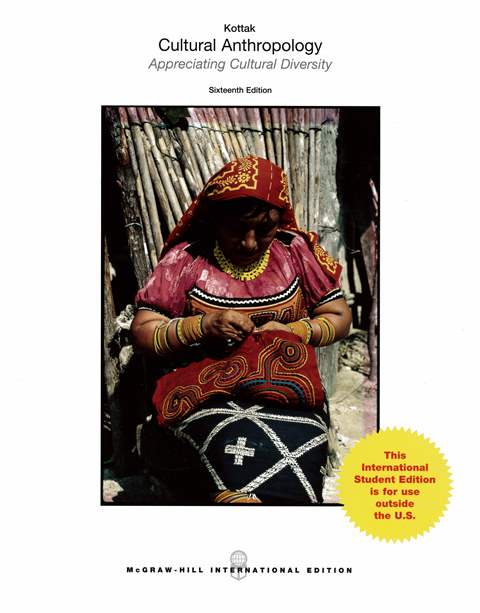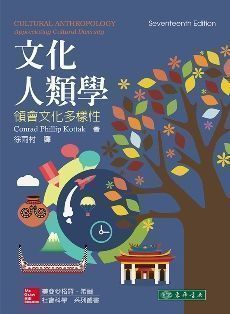書籍分類

Cultural Anthropology: Appreciating Cultural Diversity 16/e
作者:Conrad Kottak
原價:NT$ 930
ISBN:9781259094910
版次:16
年份:2016
出版商:McGraw-Hill
頁數/規格:355頁/平裝彩色
版次:16
年份:2016
出版商:McGraw-Hill
頁數/規格:355頁/平裝彩色
內容介紹 本書特色 目錄
- Description
A leading name in anthropology, Conrad Philip Kottak continues to define student learning in the cultural anthropology course. Cultural Anthropology offers an up-to-date holistic introduction to general anthropology from the four-field perspective. Key themes of appreciating the experiences students bring to the classroom, appreciating human diversity, and appreciating the field of anthropology are showcased throughout the text.
Focusing on an increasingly interconnected, and technological, world, the new Integrated Coverage of the Impact of Technology and Social Media pays systematic attention to the key role of the Internet and social media in today’s globalizing world through new sections like “Resistance via Social Media” when discussing political systems.
Connect is the only integrated learning system that empowers students by continuously adapting to deliver precisely what they need, when they need it, and how they need it, so that your class time is more engaging and effective.



